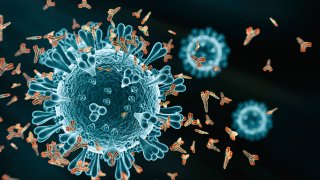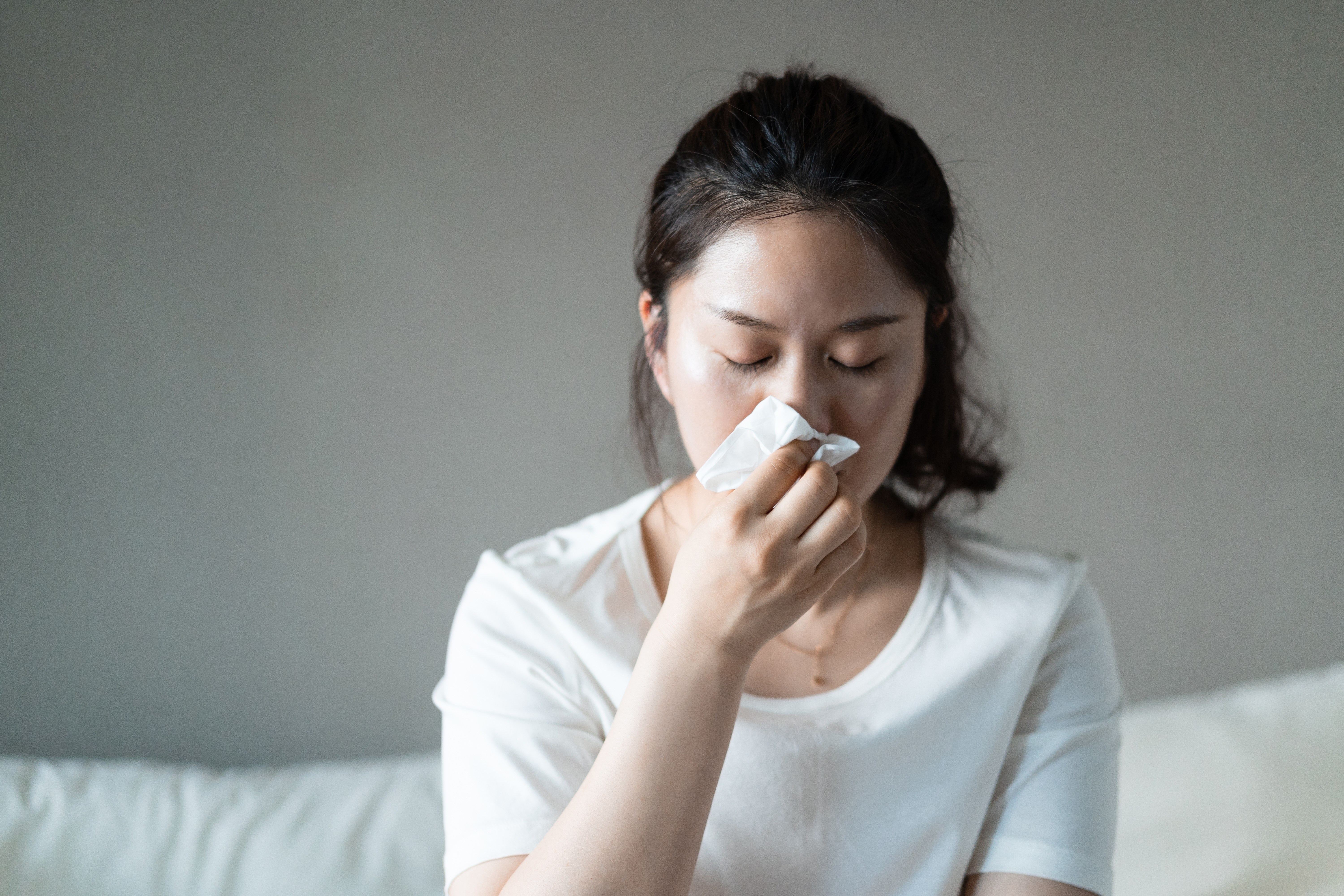
New England has seen a rapid rise in the frequency of new immune-evading COVID-19 variants BQ.1 and BQ.1.1, with the rate of cases nearly doubling in the past week alone.
According to the latest data from the Centers for Disease Control and Prevention, BQ.1 now accounts for almost 10% of all coronavirus cases in the region, and BQ.1.1 makes up another 3.6%, for a total of 13.3%. That's almost double the 7.1% figure from the previous week.
WATCH ANYTIME FOR FREE
>Stream NBC10 Boston news for free, 24/7, wherever you are. |
The growth in BQ.1 and BQ.1.1 cases largely mirrors what is being seen in the rest of the country, where cases went from over 11% to almost 17%. In the New York region, cases jumped from almost 20% a week ago to over 28% this week.
“BQ is actually a BA.5 variant,” Dr. Andrew Pekosz, a virologist at the Johns Hopkins Bloomberg School of Public Health, recently told Health. “Here in the U.S., all the variants that are circling — BQ.1.1 I guess is the biggest or the most talked about one now — they're all derived from either the BA.5 or the BA.4 variants. They’ve picked up a few mutations that help them evade some of the infection or vaccine-induced immunity.”
Get updates on what's happening in Boston to your inbox. Sign up for our >News Headlines newsletter.
Nightmare COVID Variant Is Here. What Do We Know About It?
There is still no evidence in the CDC's data of the so-called "nightmare" XBB strain in any of the 10 regions of the U.S., although Fortune reported last week that it was first detected here on Sept. 15 and over a dozen cases have been identified, mostly in New York. And throughout the pandemic, COVID numbers in New York have often provided an early look at what Massachusetts and the other southern New England states have in store.
XBB is also a variant of omicron and has been dubbed the "nightmare variant" in Singapore. It is extremely immune evasive and has also shown that it might be immune to current vaccines.
Dr. Maria Van Kerkhove, an infectious disease specialist who serves as the technical lead for COVID-19 response at the World Health Organization, posted a video to Twitter last week to address growing concerns about the XBB variant.
"We do know this recombinant has a significant growth advantage. All of the subvariants of omicron are showing increased transmissibility and properties of immune escape," she said. "With this XBB recombinant we have one study based on a pseudo virus, so not a live virus, that is analyzing antibody escape and it's showing significant immune evasion. And this is of concern for us because we need to ensure that the vaccines that are in use worldwide will remain effective at preventing severe disease and death."
Van Kerkhove said there have been no signs of increased severity in XBB and BQ.1.1 and BQ.1 variants, "but it's very early and we have very little data to assess this."
"We need to be prepared for this," she said. "Countries need to be in a position to conduct surveillance, deal with increases in cases and perhaps deal with an increase in hospitalizations. We don't see a change in severity yet and our vaccines remain effective, but we have to remain vigilant."
How Severe Are the New COVID Variants?
Doctors interviewed by NBC10 Boston last week said there isn't any data yet to suggest that the new variants will cause more severe disease. But that doesn't mean they don't anticipate some level of winter surge.
"Only time will tell," Dr. Sabrina Assoumou of Boston Medical Center said. "My big message is, unfortunately, we're seeing more variants, and the virus is actually figuring out better ways to evade our protection, but we're not hopeless and it's not a helpless situation. We have vaccines, they actually work, but the key thing is that you have to be up to date... So please get get up to date so that we are all prepared in the community before a potential winter surge."
"I think it's likely that we'll continue to see the proportion of cases that are being caused by the new variants increase because they do seem to be able to evade immunity," added Dr. Daniel Kuritzkes of Brigham and Women's Hospital. "But for the general public. I think the issue is going to be that, first of all, receiving a booster vaccine, as Dr. Assoumou said, will strengthen immunity because even if this variant can get around the antibodies and may get people infected and give them a cold, they're not going to have anything much worse than an upper respiratory infection if they've been recently boosted because there does seem to be much broader cross protection across all of these variants for severe disease and that's a really important point.




